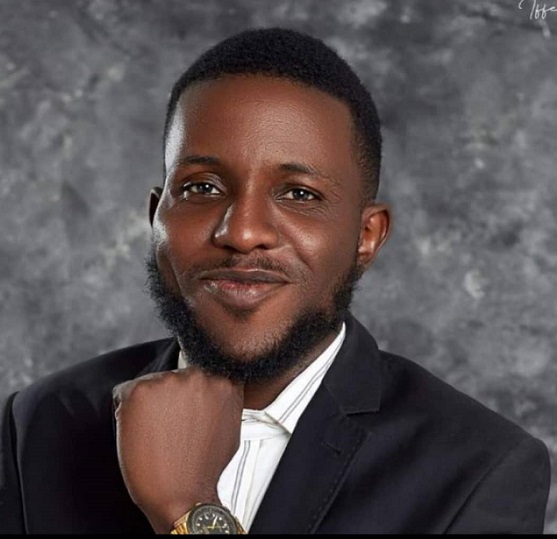Chiedozie Eze is an author and he shared his experience about the success so far as a teenagers coach and other issues. Excerpts;
Can we meet you?
I’m Chiedozie Eze, an author, speaker, and personal development coach for teenagers and young adults. My passion is about guiding teenagers and young people toward fulfilling their potential.
I’m the founder of Teen Success Academy where we run a yearly mentorship program for teenagers and young adults and also convene the 360 SUCCESS BOOTCAMPS with the empowering theme: THRIVE (Training Highly Resourceful Individuals with Value & Excellence).
What are some personal experiences or moments from your work with Nigerian teenagers that have had a significant impact on you and your advocacy?
I’ve had the opportunity to work with young people from different economic and social backgrounds, some privileged and some not so privileged. I see the challenges that the style and patterns of upbringing present to each of them. Through our interaction and support, I’ve seen a student go from Es and Fs to becoming a straight B student in one year. And of course that leaves an impact on his confidence and self-esteem.
I’ve seen 12-year-olds entering puberty and going from violent and troublesome kids to more emotionally responsible young adults.
As a personal development coach, what inspired you to focus on teenagers specifically?
If the foundation is damaged, even the righteous is not spared. I’ve seen quite a number of grown-ups struggle under the weight of a damaged foundation. And so I choose to work at the foundation, to help build a generation of young people who go on to thrive in their adult lives.
In your opinion, what role should education and schools play in addressing the challenges faced by Generation Z in Nigeria and globally?
Schools are primarily academic institutions, and a subset of a broader, more comprehensive concept of education, which encompasses the entire process of acquiring knowledge, skills, values, and attitudes throughout one’s life.
In my view, and considering the times that we now live in, I believe we need to take the approach of providing a wide range of learning experiences for Gen-Z without compromising the academic process. Such that education and schools should serve as more than just academic institutions. They should be nurturing grounds for holistic development, where students are equipped not only with knowledge but also with essential life skills, critical thinking, and empathy. These are some of the things that make for a whole and functional adult.
Tell us a bit about your books, ‘Teenagers of the Bible’, ‘Game Plan’, and ‘Why Teens Fail.’
Game Plan was indeed the first of them, it’s a life planning workbook for young people, typically designed to introduce the young person to the skill of goal setting and planning.
With Teenagers of the Bible, I was trying to make the Bible more relatable and applicable to the contemporary young person. Some persons have called it a devotional, others have even said it is a bible for teens, but essentially, it is a simple study I did on some bible characters (some of whom I bet you didn’t know were teenagers at the time), and I extracted lessons from those characters that today’s teenager can immediately apply in his/her life.
Why Teens Fail is my latest work, and a colleague of mine described it as a Teen’s Crises Dictionary. The book is written in a story-telling format, and it examines 7 crises of adolescence that teenagers go through and provides practical strategies on how they can thrive. It’s beautiful, even if I say so myself. It has sold over a thousand copies since its launch in November.
Many parents struggle to connect with their teenagers. What are some practical tips you can offer to help parents foster better understanding with their teenage children?
One word for that would be, TRUST. Wherever you find a disconnect between the older generation and the ones coming behind, whether at home or in an office or business setting, it is usually a result of a break of trust. Repairing that and building a strong connection with your teenager begins with open and empathetic communication. You have to lead the process that way, then back it up by actively listening to your teen, without judgment. That would encourage them to share their thoughts, feelings, and challenges, knowing that their perspective is valued. Of course, other things can be built on that.
In a rapidly changing world with evolving technology and social norms, how can we ensure that teenagers are equipped with the skills and knowledge they need for a successful future?
As I said about education, ensuring teenagers are prepared for the future requires a multifaceted approach that includes digital literacy. Unfortunately, what we have can mostly be described as social media savvy as against digital and technology savvy young people.
Digital literacy also includes skills like critical thinking, problem-solving, and decision-making so that more teenagers can play in tech by contributing ideas, products, and solutions, not just being tech consumers.
How do you envision the future of youth advocacy and support for teenagers in Nigeria and beyond, and what role do you see yourself playing in that future?
The future of youth development holds immense promise. I envision a future where teenagers are empowered, engaged, and supported in growth both at personal and community levels. From more comprehensive educational reforms, access to opportunities and resources, and a strong emphasis on leadership. I will continue to lend my voice to teen development issues and inspire teenagers to discover, develop, and deploy their potential. My role will also include advisory services, partnering with parents and families, organizations, institutions, and policymakers. Africa and Nigeria’s greatest potential is her youth and my goal is to bridge the gaps in our current systems and help harness that potential for global relevance.
READ ALSO FROM NIGERIAN TRIBUNE
WATCH TOP VIDEOS FROM NIGERIAN TRIBUNE TV
- Relationship Hangout: Public vs Private Proposals – Which Truly Wins in Love?
- “No” Is a Complete Sentence: Why You Should Stop Feeling Guilty
- Relationship Hangout: Friendship Talk 2025 – How to Be a Good Friend & Big Questions on Friendship
- Police Overpower Armed Robbers in Ibadan After Fierce Struggle






